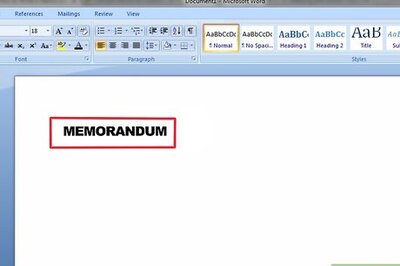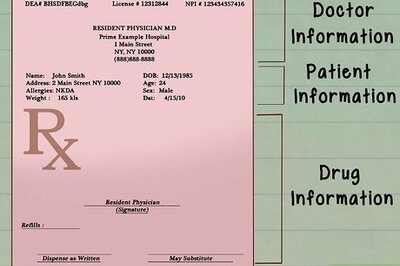
views

Use standard English. Standard English is a form of English accepted as the most universally accepted, based mostly on written English. British and American style English are very similar, but vary substantially in accent, some spellings, and pronunciation. Be aware that there are many regional accents and dialects throughout the world. Avoid nonstandard (i.e., ungrammatical) forms such as “ain’t”, “can’t hardly”, “can’t seem to”, “irregardless”, and “anyways”. See the list below (“Nonstandard and Questionable Usage”) and How to Use Commonly Misused Words. Consult a dictionary for proper usage and a style manual, such as Strunk and White’s Elements of Style. Know what phrases, words, and pronunciations your locality uses that is not Standard English. These might be common ones like "aint". Or It can be meanings such as "ugly" (New England, U.S.A) meaning either possibly "unattractive" or "angry" depending on context. Understand if a word is slang or not. Slang words are not accepted as formal Standard English even if often understood informally in conversation. They are often highly localized. Examples include: LOL, dead presidents, DIY, or whopper.

Keep proper pronunciation in mind. For most words that can be pronounced more than one way (such as "either"), all the different pronunciations are correct. For a few, such as "mischievous", one pronunciation is preferred. What the "correct" pronunciation is may depend slightly on your region. Words like "Aluminum" are pronounced quite differently in British English and American English. While neither is incorrect, you may want to speak in the same manner as the people you converse with.

Keep proper spelling in mind. For words like "Color", all the different spellings are fine, but for "jail", one spelling is preferred.

Watch major network TV news, and other programming that uses Standard English. Newscasters in particular are very careful to present language that is grammatically clear and well articulated. Therefore, it is usually recommended to people trying to learn Standard English to watch such news programs. Certain other television shows will present very good Standard English, however television ranges wildly in terms of proper English usage. In general, broad-appeal scripted shows from networks tend to have very good English. Reality shows may have speech that is actually closer to what normal speech really is, but may not help you speak closer to Standard English.

Expose yourself to writing to pick up structures, tones, and ideas. Not everything in print is perfect, but the vast majority of printed works, such as books and magazines, have been thoroughly edited. Look at what makes good writing good. As you read more, mistakes and problems will start to "look" or "sound" wrong to you. Correctness will start to feel natural. If you want to write with a particular style or in a particular genre, read things that are related to that. You will tend to adopt styles and ideas from what you read.

Listen to talk radio, podcasts, and audio books.

Read aloud, with intonation. You can read to your children or even your pets. Reading passages aloud is one way to interpret their structures, and it will make you more conscious of their details. It will improve your speech, especially if you are hesitant when you speak or say "uh" and "um". If you practice reading aloud, you will be less likely to stammer or pause when you speak. You will find yourself saying words carefully instead of slurring them together.

Build your vocabulary. Reading will expose you to a far wider range of words than conversation or spoken media, such as radio or television. Collect words that you do not know. Also browse the dictionary, play word games (such as Hangman, Fictionary, and Freerice), and subscribe to a word of the day.

Play with the language to explore it. Start a pun war. Dust off your Scrabble game. Invent your own word. Try your hand at a garden path sentence, write your own aprosdoketon, or enter the Bulwer-Lytton contest for bad prose or one of its imitators.

Practice writing. Write for a journal, blog, or wiki. Wikis, especially, need writers and frequently come with a whole community of editors who will help you. Whatever and wherever you write, practice daily, if possible. In email and text messages, use complete sentences. That counts as writing, too.

Consider your audience and purpose. Just as you wear different clothing for different weather, you should write or speak differently depending upon your audience. Is this communication factual or fanciful? Are you telling a story, arguing a point, or explaining a procedure?

Proofread your writing and have it proofread by someone else. As you proofread, you can see what kinds of mistakes you make often. Read your composition aloud. You may find a grammatical error when something that you read does not sound right.

Do not be afraid to make mistakes. That fear may keep you from writing well. Language takes extraordinary amounts of practice to master, and mistakes are part of the learning process.

Try learning another language. It will make you more conscious of the structures and grammar in your own. Many of the Latin-based and Germanic languages have words and structures similar to those in English, and exploring these similarities and differences will strengthen both languages.




















Comments
0 comment